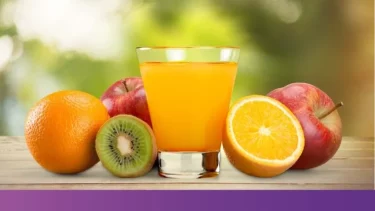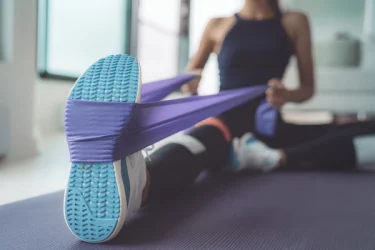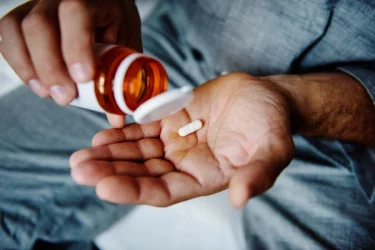Estimated reading time: 5 minutes
Did you know that your pre-surgery diet can make a big difference in how well your body recovers?
This is where prehabilitation, or “pre-hab,” comes into play. Think of it as getting your body in the best shape possible before surgery to set yourself up for a smoother recovery.
Eating the right foods in the weeks leading up to your surgery can help you heal faster, reduce complications during and after the operation, and get you back on your feet sooner.
This guide takes a close look at the best things to eat and drink, as well as what to avoid in the days and weeks before surgery.
Nutrition before surgery at a glance
- Cost: treatment dependent
- Ways to pay: self-pay, insured, payment plans
- Hospital stay: treatment dependent
On this page:
Good nutrition before surgery helps your body heal faster, fight infection, and reduce complications by providing essential proteins, vitamins, and hydration. A balanced diet started as early as possible before surgery prepares your body for a smoother recovery and better surgical outcomes.
The importance of nutrition before surgery
“Eat all your greens and you’ll grow up big and strong.”
“An apple a day keeps the doctor away.”
“Carrots will make you see in the dark.”
Chances are we’ve all heard at least one of these; sayings passed down through the generations emphasising the importance of eating healthily. And while those mentioned above may not be 100% scientifically water-tight, the general message is accurate (just like our mothers told us).
Your body needs specific nutrients to heal, fight off infections, and rebuild tissues after surgery. If you’re low on key vitamins, minerals or protein, recovery can be slower and more complicated.
A well-balanced, nutrient-rich diet gives your body the fuel it needs to recover faster, handle stress better, and reduce the risk of post-surgery complications.
Let’s break it down:
1. Protein for healing
Protein is like your body’s construction crew. After surgery, your body needs to repair tissues, and protein is essential for this process. Foods like chicken, fish, eggs, beans, and tofu are all great sources of protein. To be extra good, aim for lean proteins (i.e. skinless chicken, low-salt sausages). These are easier for your body to process.
2. Carbohydrates for energy
Surgery can be exhausting and your body will need extra energy to recover. Complex carbohydrates like whole grains, brown rice, quinoa, and sweet potatoes provide slow-burning energy that helps keep your strength up before and after the procedure.
3. Healthy fats for immunity
Believe it or not, some fats are good for you! Healthy fats, such as those found in avocados, nuts, seeds, and olive oil are great for reducing inflammation and boosting your immune system.
4. Vitamins and minerals for recovery
Vitamins and minerals can support your body’s healing process, so make sure you’re eating plenty of different fruits and vegetables. Vitamin C, found in citrus fruits, peppers and strawberries, helps with wound healing and boosts your immune system. Zinc, found in foods like pumpkin seeds, lean meats, and chickpeas also plays a critical role in tissue repair.
5. Hydration for circulation and healing
Don’t forget about water! Staying well hydrated before surgery helps to keep your blood flowing and to ensure that your organs, muscles, and skin are in peak condition. Drink plenty of water and consider incorporating herbal teas, fruit juices, or broth-based soups if you want to mix things up.
The best foods to eat before surgery
With your surgery date just a matter of weeks away, it’s important to build a diet that’s rich in nutrients.
Here’s a guide to what you should focus on:
- Lean proteins: Chicken, turkey, fish, tofu, beans, and legumes. Lean red meat in moderation is also a good source of iron
- Complex carbs: Whole grains, oats, brown rice, quinoa, and whole-wheat pasta will help to keep the energy levels high
- Fruits and veggies: The more colourful, the better! Think berries, spinach, carrots, broccoli, and citrus fruits
- Healthy fats: Avocados, nuts, seeds, olive oil, and fatty fish like salmon
- Hydration: Water, coconut water, broth-based soups, and herbal teas.
If you fancy some more bedtime reading, why not take a look at the best foods for eye health and the best foods for bone and joint health?
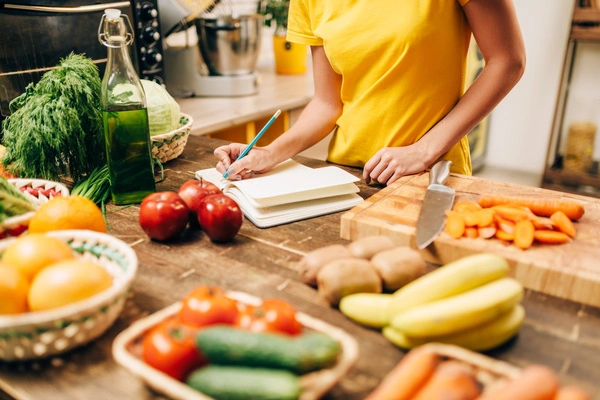
Foods to avoid before surgery
This probably isn’t what you want to hear, but we’re afraid takeaways are off the menu in the lead-up to your surgery. This is because certain foods can increase inflammation or cause bloating and discomfort, none of which is helpful before surgery.
As part of your surgery pre-habilitation routine, try to avoid eating too much of the following foods in the weeks and days beforehand:
- Processed foods: They’re often high in salt, sugar, and unhealthy fats, which can interfere with healing
- Sugary snacks: Sweets, fizzy drinks, and other sugary foods can mess with your energy levels and immune function
- Alcohol: Drinking alcohol can impair your immune system and slow down recovery, so it’s best to avoid drinking alcohol before surgery
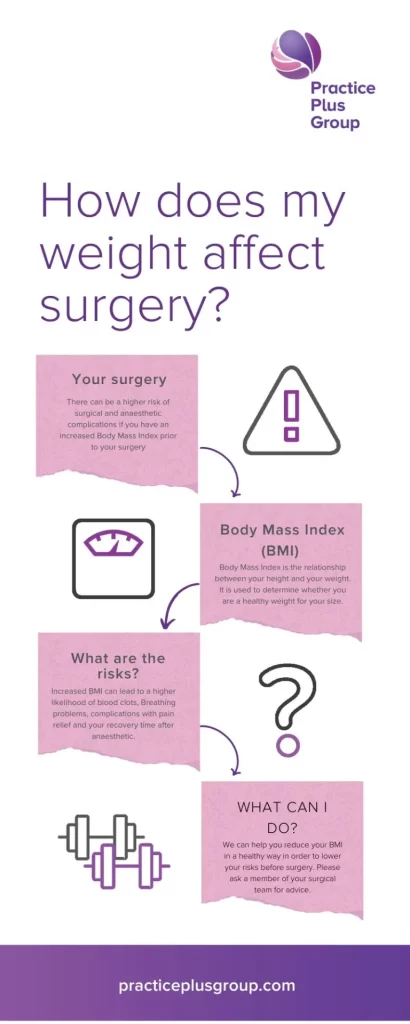
What is the best diet to prepare for surgery?
Before you make any wholesale dietary changes, check in with your doctor or healthcare provider to make sure it is safe for you to do so. Some people may require specialised diets depending on their health, any medical conditions, or the type of surgery they need.
For example, some types of surgeries require you to be on a liquid diet in the days leading up to your procedure. Patients with diabetes will likely need to follow different dietary instructions before surgery too.1
With that in mind, here are some tips and guidelines on the best pre-surgery foods that help to promote recovery.
A sample pre-operation diet plan
You know what? Because we’re lovely people here at Practice Plus Group, we’ll make things easy for you. Here’s a sample meal plan that incorporates all the key nutrients you need to get in tip-top shape for surgery:
- Breakfast: Porridge oats topped with fresh berries. You could even add a handful of walnuts and a drizzle of honey if you’re feeling adventurous. Best served with a cup of green tea
- Lunch: Grilled chicken breast with quinoa salad, mixed with spinach, cherry tomatoes, cucumber, and a light olive oil dressing
- Snack: If you hit the 3pm slump, why not try some apple slices with a tablespoon of almond butter?
- Dinner: Baked salmon with steamed broccoli and sweet potato
- Hydration: Water with a slice of lemon throughout the day.
The power of supplements
If you struggle to get enough protein from food alone, you might want to consider a protein supplement. A protein shake made with whey or plant-based protein can help you meet your body’s protein needs, especially if you’re recovering from an illness or have dietary restrictions.
There is also evidence to show that taking a vitamin D supplement has benefits before surgery. The NHS recommends that everyone take a minimum of 10mg vitamin D supplement daily.2
As always, check with your doctor before taking any supplements, as some can interfere with certain medications.
Don’t forget your gut health!
Your digestive system is often overlooked, but it plays a big role in recovery. Eating fibre-rich foods like vegetables, whole grains, and legumes helps keep your gut healthy and can prevent post-surgery constipation. This is a common issue after anaesthesia. Consider adding probiotic-rich foods like yogurt or fermented veggies (e.g., kimchi or sauerkraut) to keep your gut in tip-top shape.
Losing weight before surgery
If your surgeon has recommended losing some weight before surgery, it’s because even a modest amount of weight loss can make a big difference in how well you recover. Carrying extra weight can increase the risk of complications during and after surgery. These can include infections, breathing problems, and longer recovery times.
To lose weight safely before surgery, try to focus on a balanced diet. This should include:
- lean proteins
- vegetables
- whole grains
- healthy fats.
Control portion sizes, avoid sugary and processed foods, and stay hydrated with plenty of water. Moderate exercise before surgery, with your doctor’s approval, can also support weight loss and improve your strength.
Always consult your healthcare provider to ensure your weight loss plan is safe and tailored to your needs.
Fasting before surgery
In addition to dietary focus before surgery, there’s another important aspect of pre-surgery preparation to consider: fasting. Fasting in the hours before surgery is a crucial step to ensuring your safety during anaesthesia and the surgery itself.
Why can’t you eat food before surgery?
When you undergo anaesthesia, your body’s natural reflexes are suppressed. These include the reflex that prevents food or liquid from coming back up from your stomach and entering your lungs. This can lead to a serious complication called aspiration, which occurs when food or liquids enter your lungs. Fasting ensures you have an empty stomach, reducing the risk of this happening.
Sticking to the fasting guidelines is critical. If you accidentally eat or drink something past the cut-off time, you’ll need to inform your surgical team right away. In some cases, your surgery may need to be rescheduled to ensure your safety.
How long before surgery should I stop eating?
Your healthcare team will provide you with specific instructions based on the type of surgery and anaesthesia you receive. Here are the general guidelines for fasting in the hours before surgery according to food type:
Food type | When to stop |
|---|---|
Solid foods | 8 hours before your scheduled hospital arrival time |
Clear liquids | 2 hours before your scheduled hospital arrival time |
Milk and dairy | 6 hours before your scheduled hospital arrival time |
Alcohol | At least 24 hours before your scheduled hospital arrival time |
1. Solid foods
Usually, you will be asked to stop eating solid foods 8 hours before surgery. This includes any heavy or solid meals, snacks or even chewing gum. Your last solid meal should be easily digestible, so try to avoid large, rich, or fatty meals in the hours leading up to your fast.
2. Clear liquids
Most guidelines allow you to drink clear fluids (such as water, black coffee, or tea without milk) up until 2 hours before your surgery. Clear liquids leave your stomach more quickly and are less risky in terms of aspiration. However, it’s important not to drink anything other than clear liquids in this window.
Clear liquids include:
- water
- clear broths
- apple juice
- black coffee or tea (without milk or cream).
3. Milk and dairy products
Avoid milk and any dairy products like yogurt or smoothies in the 6-8 hours before surgery. Dairy takes longer to digest and can increase the risk of complications under anaesthesia.
4. Alcohol
Avoid alcohol for at least 24 hours before surgery. Ideally though, you should try to cut back or stop drinking completely in the 3-5 days leading up to your procedure. Alcohol can:
- interfere with your body’s recovery process
- affect how your body responds to anaesthesia
- increase the risk of bleeding or dehydration.
If you’re unsure about your fasting timeline or have specific dietary concerns, talk to your doctor or surgical team well before the day of surgery.
Your last meal before surgery
For your last meal before you begin your fast, stick to something light and easy to digest such as soup or a salad.
When to start pre-operative nutrition
Ideally, you want to start prepping your body nutritionally as soon as you know about your surgery. Two to four weeks before your surgery is a great window to focus on improving your diet. This gives your body time to absorb all the nutrients it needs for recovery.
Of course, everyone’s situation is different, so always check with your doctor or dietitian to tailor your nutrition plan to your specific needs.
By fuelling your body with the right foods, you can give yourself the best chance for a speedy recovery. You’re also more likely to experience fewer complications when on the other side of your surgery. Remember, the journey to recovery starts before you even walk into the hospital!
Sources and references
2 Vitamin D status and surgical outcomes

Acknowledgements
James Wood, Content Specialist
FAQs about pre-surgery nutrition
If you still have questions about what to eat before surgery, your healthcare provider will be able to help. In the meantime, here are a load of answers to common questions around nutrition prior to surgery.
It’s very rare but it can happen. Eating before surgery is dangerous because it increases the risk of aspiration, where food or liquid from your stomach enters your lungs during anaesthesia. This can lead to serious complications, like pneumonia or breathing problems. Following fasting guidelines from your doctor is crucial to ensure your safety during surgery.
The NHS usually advises a balanced intake of nutrients to support recovery, typically emphasising lean proteins, vegetables, whole grains, and healthy fats. For certain surgeries, a low-calorie diet may be recommended to reduce fat around organs.
To reduce inflammation, focus on an anti-inflammatory diet that includes; fatty fish, leafy greens, berries, nuts, seeds, olive oil, turmeric, and ginger.
Superfoods like salmon, leafy greens, berries, nuts, and turmeric are rich in nutrients and antioxidants that support healing and reduce inflammation. If you’d like advice tailored to your specific needs, talk to a nutritionist.
Focus on light, easily digestible foods like lean proteins, vegetables, whole grains, and broth-based soups.
A simple, balanced meal like grilled chicken, steamed vegetables, and brown rice is ideal for easy digestion and steady energy.
Usually, no solid food is allowed the morning before surgery. You may be allowed clear liquids like water or clear broth up to 2 hours before the procedure.
Avoid heavy, fatty foods, alcohol, spicy foods, and processed snacks to reduce bloating and aid digestion.
Dairy is harder to digest and can increase mucus production. This can interfere with breathing during surgery.
A high-fibre diet with lean proteins, fruits, vegetables, and whole grains helps prevent constipation and supports healing.
Focus on lean proteins, whole grains, and anti-inflammatory foods like fish and vegetables to boost strength and reduce swelling.
Protein-rich foods like chicken, fish, eggs, along with fruits, veggies, and whole grains help repair tissue and reduce inflammation.
A high-protein, low-carbohydrate diet with plenty of water is recommended, focusing on lean proteins, small portions, and avoiding sugary or fatty foods.


